"Collusion" Wasn't The Only Trump-Russia Media Conspiracy: Revisiting "Russian Bounties."
Do you remember the press claims of "bounties" on US soldiers? Do you remember when they fell apart?
Background: I want to revisit a conspiracy theory tied to the broader “Russian Collusion” narrative: The allegation that Russia had placed bounties on American servicemen in Afghanistan and that former President Donald Trump knew about them
The media (and Democrats) ran with these rumors as if they were confirmed fact to hurt Trump in the lead up to the 2020 Election.
But the stories were an example of the media’s new favorite term: disinformation. Rather than work to get to the bottom of the allegations—or wait for details to be confirmed before they repeated them—the media pushed them, often taking the claims a step further to use them as evidence that Trump was alternatively evil or controlled by Russia.
The hoax made it around the world before the truth could get its shoes on.
Media coverage: The New York Times scooped the salacious allegation in June 2020: Russia had placed bounties on the heads of U.S. servicemen in a deal with the Taliban. Two days later, the Washington Post reported that the scheme resulted in the deaths of American soldiers in Afghanistan. Both outlets said Trump knew about these facts and did nothing.

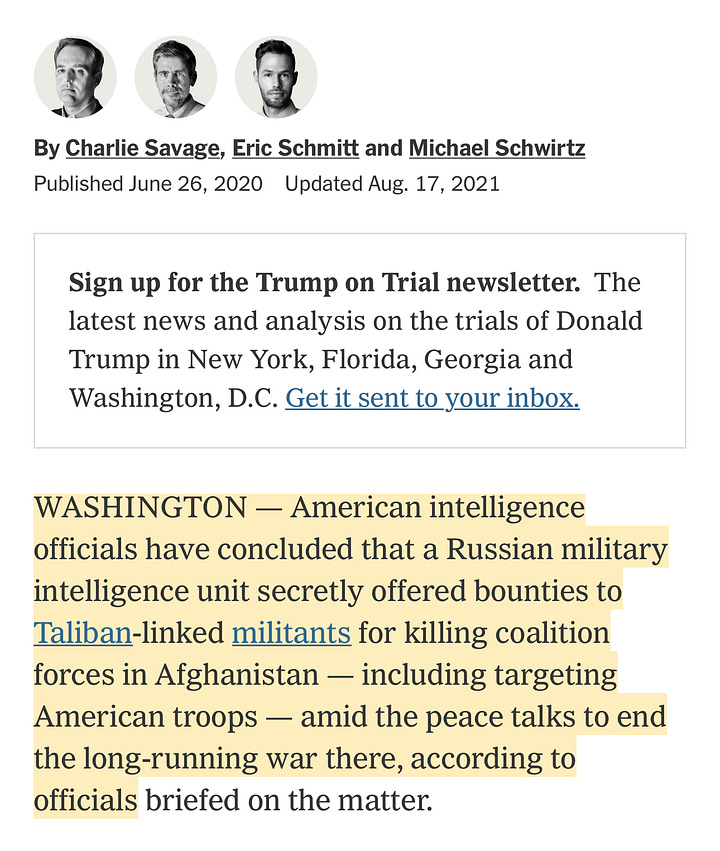
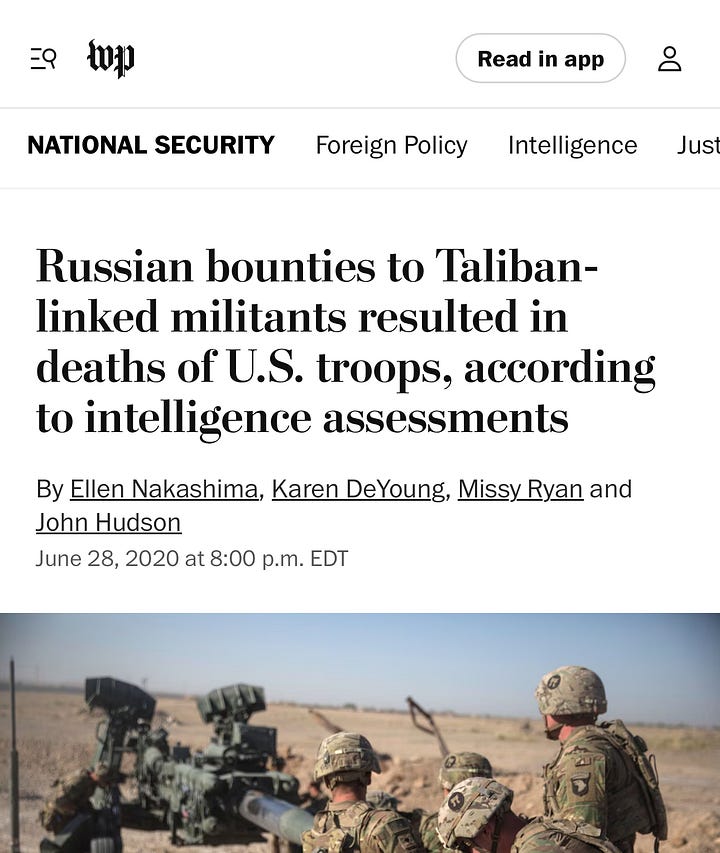
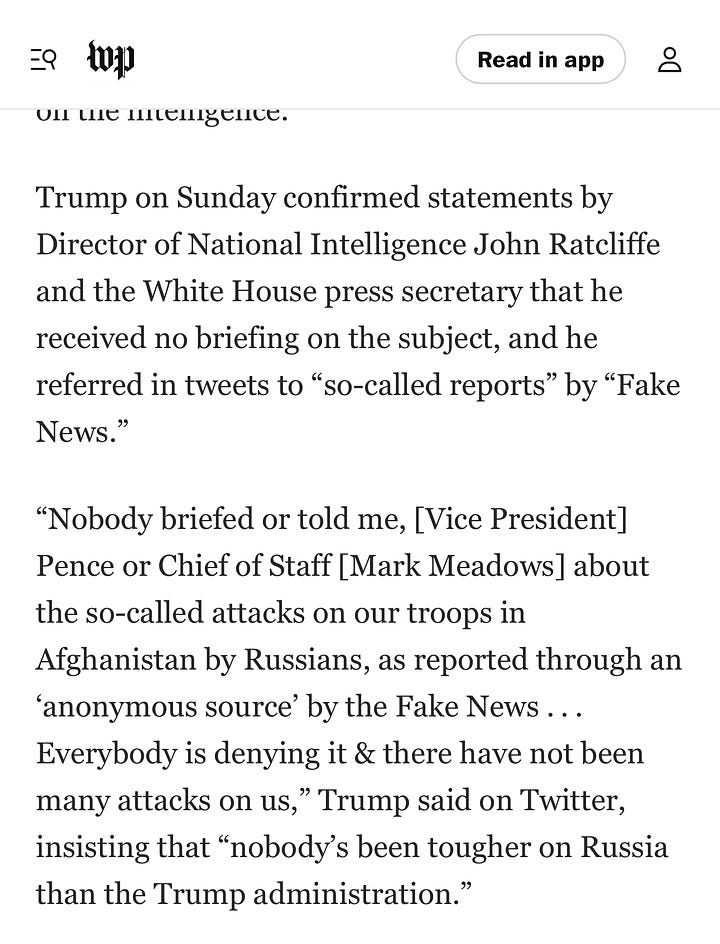
If true, the president wouldn’t just look deprived, but deeply in the pocket of our most hated geopolitical enemy. Did the Russian’s have Trump in such a bind that he would permit even the targeted killings of American soldiers to go unanswered? The media wanted to know.
But the rush to judgement precluded checking out the basic details of the story. Instead, countless outlets took the unconfirmed claims from a collection of anonymous sources drawn from an intel community famously antagonistic toward Trump and repeated them as gospel truth.
The New York Times claimed that the story they had broken was already as good as fact, pointing to the “uproar over U.S. intelligence showing that Russia paid bounties for the killings of American troops in Afghanistan.” The Times suggested it could be a political problem for Trump.
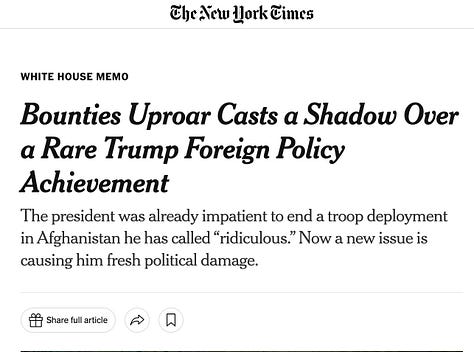
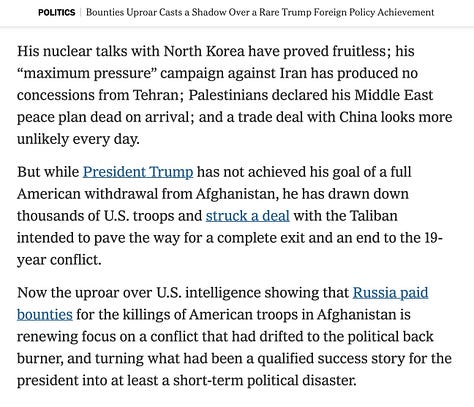
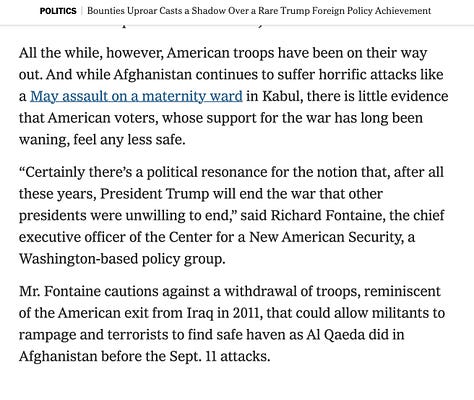
And on Twitter, the Times continued to push the claims as fact, pointing the finger at Trump for the deaths of soldiers. Using grieving families as fodder to push unconfirmed reports that fit your political narrative is…a lot of words I don’t want to print.
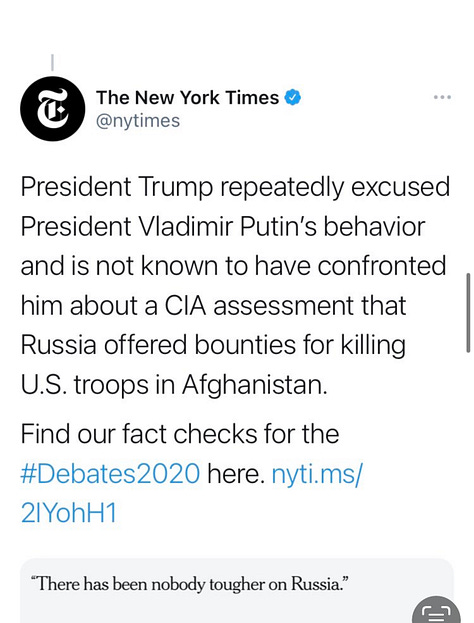
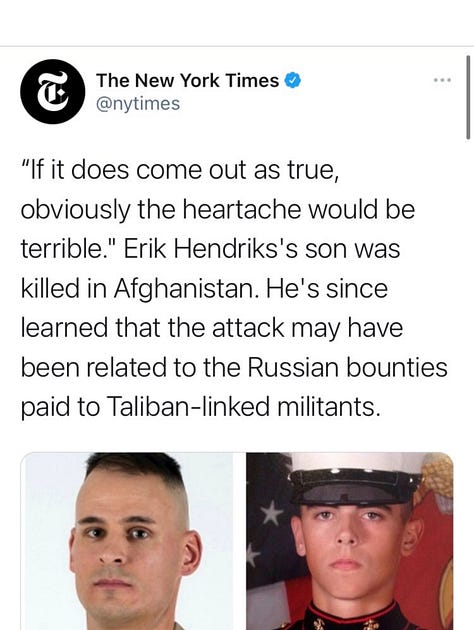
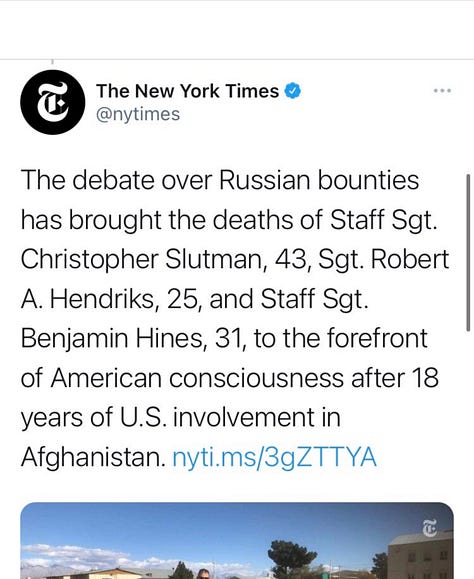
CNN had one of my favorite headlines: “Former Intelligence officials scoff at White House denials that Trump wasn’t briefed on Russia bounty.” Whether or not the information was actually true was, again, not given a mention, despite having five reporters on the byline of the piece. Instead, they went for the heartstrings: “A current administration official also said that some members of the US intelligence community feel ‘abandoned’ by the Trump administration.”
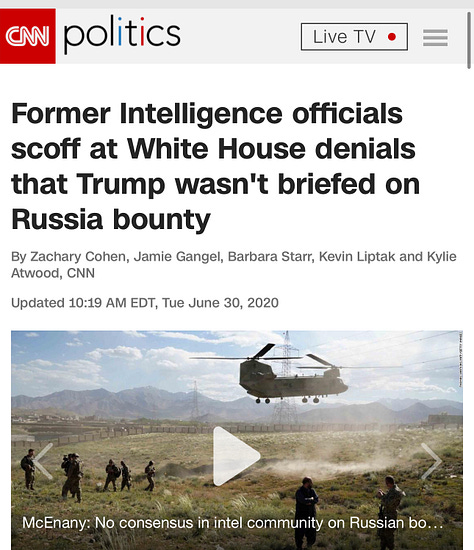
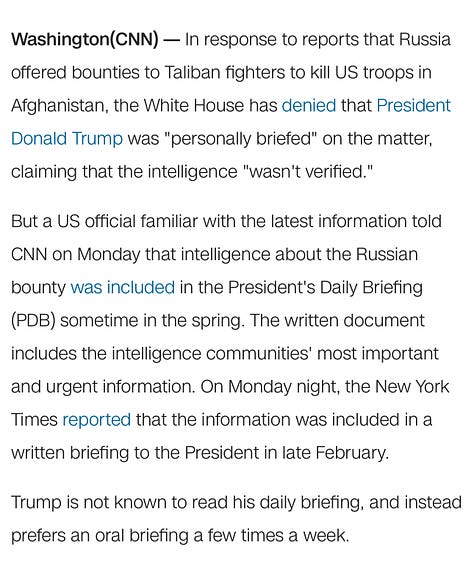

CNN included the fact that “Trump has denied the veracity of US intelligence reports accusing Russia of paying bounties to Taliban fighters to kill US troops,” in a story about Russia being Trump’s “Achilles’ heel” in a story titled: “37 times Trump was soft on Russia.” (Do you remember how stupid everything was back then? I’m not sure you do).
And like the Times, CNN had a lot to say on social media about the fallout of the claims they didn’t bother to verify. And brought Democrats on to do the same.
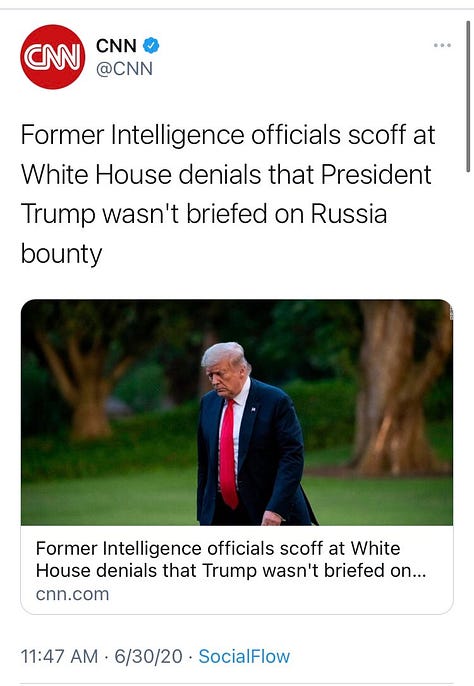
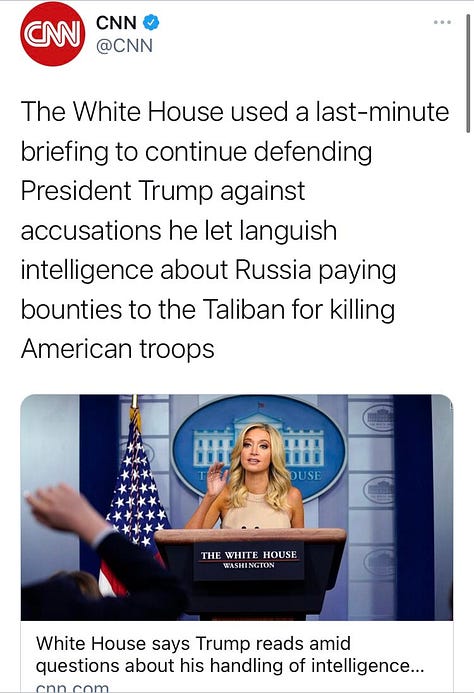
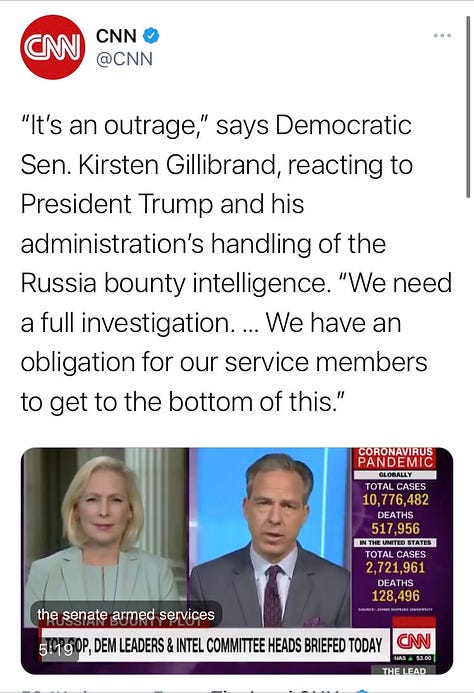
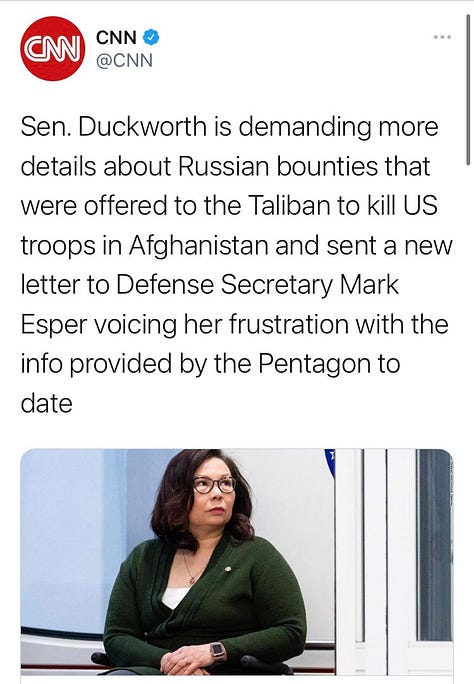
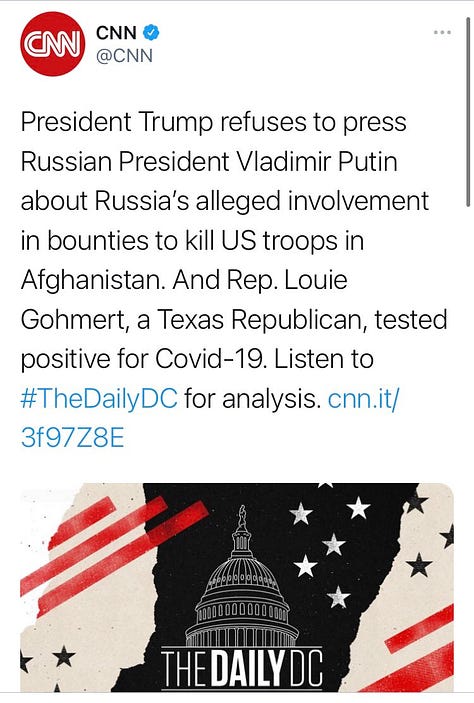
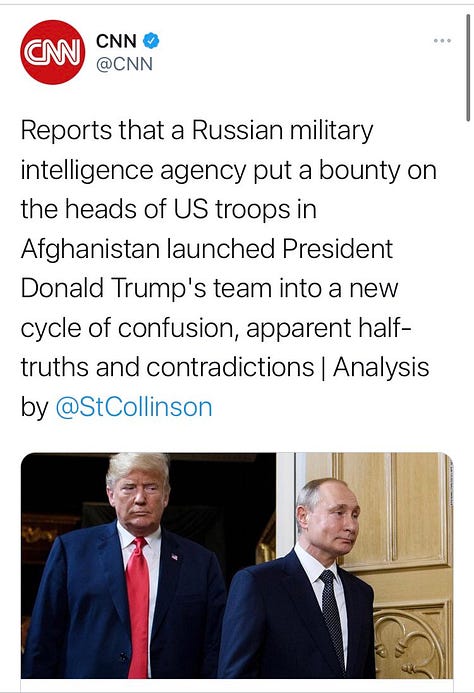
If you’ve followed me long enough, you’re probably familiar with my disdain for “analysis” stories branded as straight news. Following their scoop, the Washington Post had a couple of doozies, the two most ludicrous of which were published on July 1, 2019.
In a story titled “Why didn’t the U.S. rebuke Russia for its Taliban bounty deal? Four things to know” the Post, like other outlets, treated the allegations as already bulletproof, even though, “as dramatic as the revelation of Russia’s bounty operation is in the United States, it doesn’t appear particularly salient to Russian goals in Afghanistan.” That such a claim didn’t give the outlet pause is telling.
But the real embodiment of the groupthink that plagued so many outlets and writers around this time was another piece. The headline sums up the derangement at the time: “The only people dismissing the Russia bounties intel: The Taliban, Russia and Trump.”
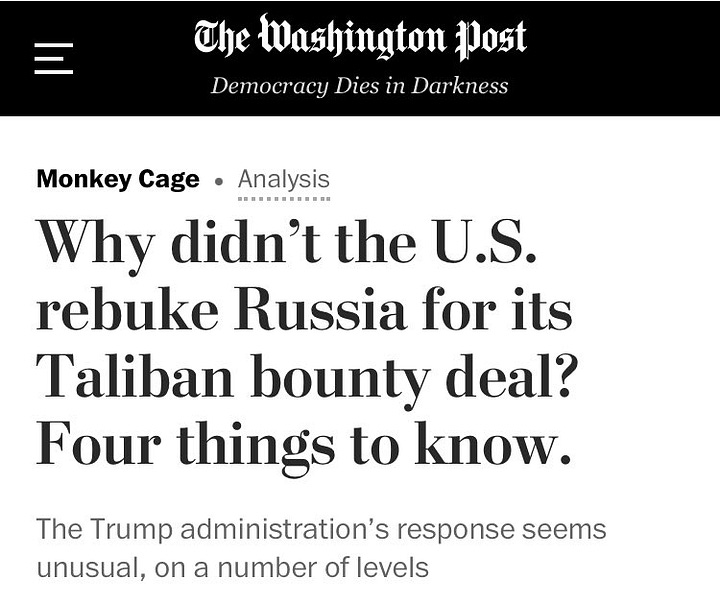
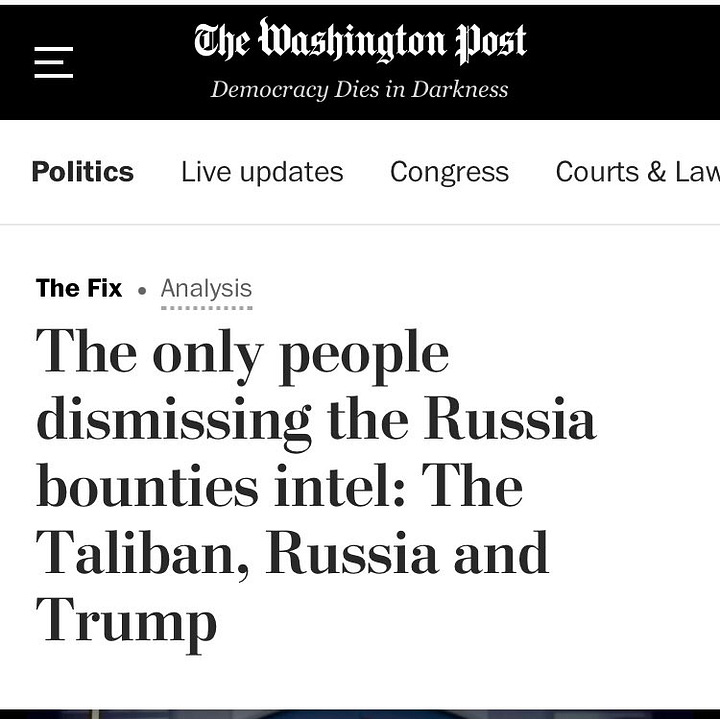
If the people I don’t like are saying it, it must be false. How’s that for journalism?
The story went on to claim:
Despite days of disclosures, Trump cannot get out of hoax mode. He claimed Sunday night that he spoke with “intel” and that the information about Russia’s bounties was “not credible.” Since then, we have seen overwhelming confirmation that the intel was real…
MSNBC, their hosts, and their guests turned these claims into a round-the-clock spectacle. I couldn’t possibly include all of them and retain my sanity. Here’s a sampling:

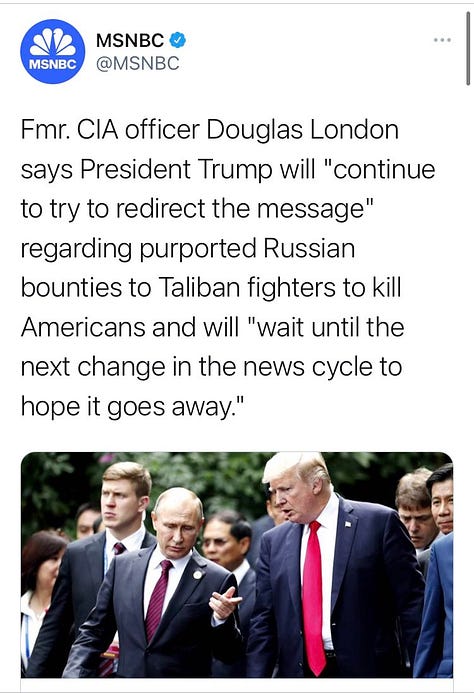
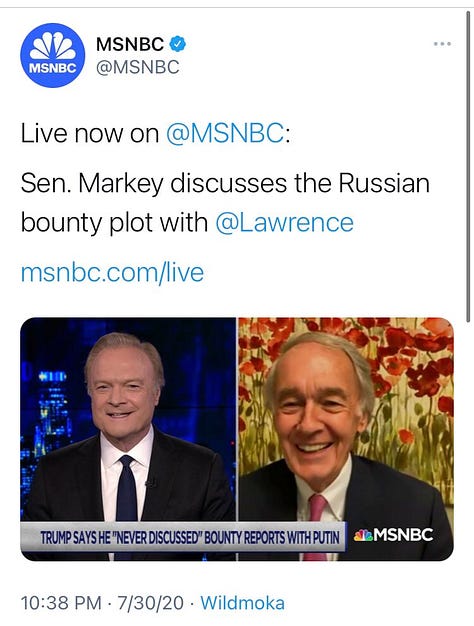


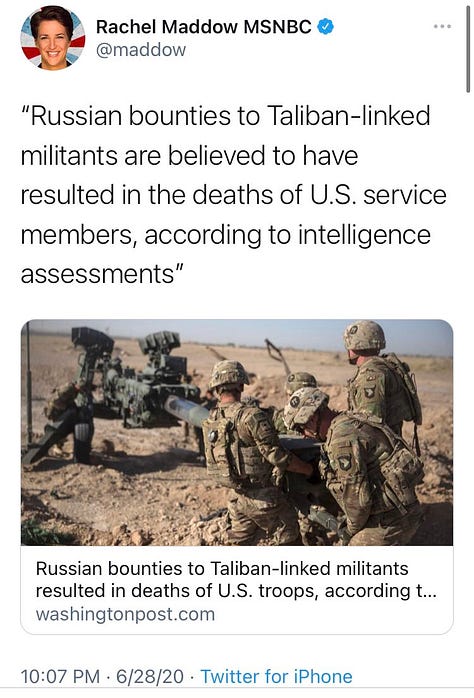
I could’ve written this whole story exclusively on host Joy Reid’s tweets.
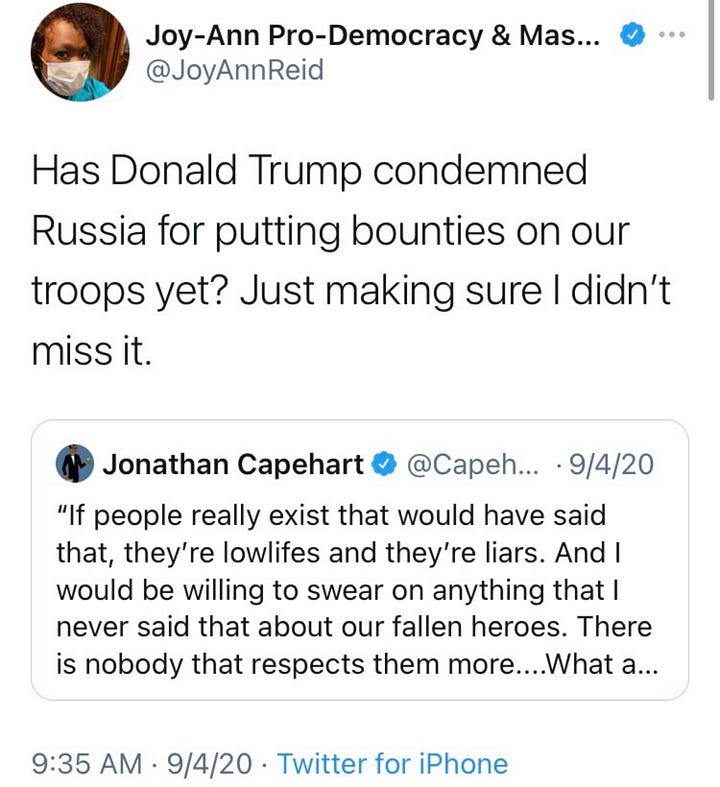
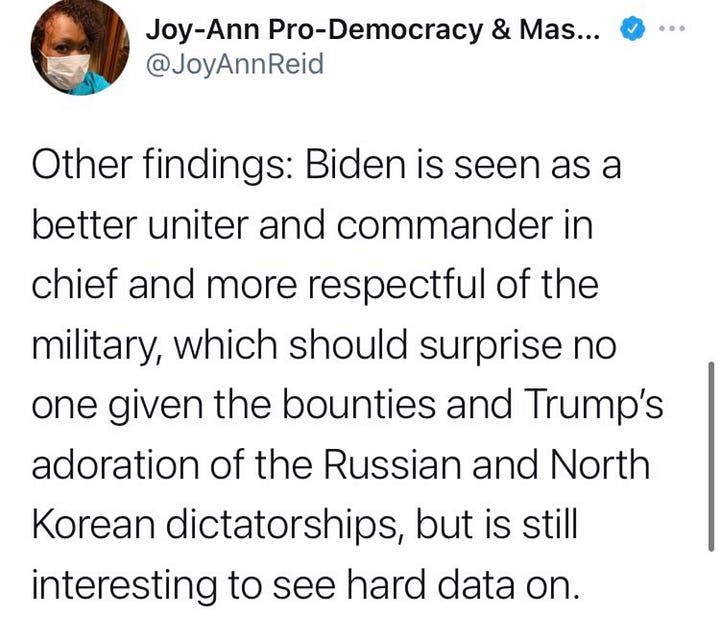

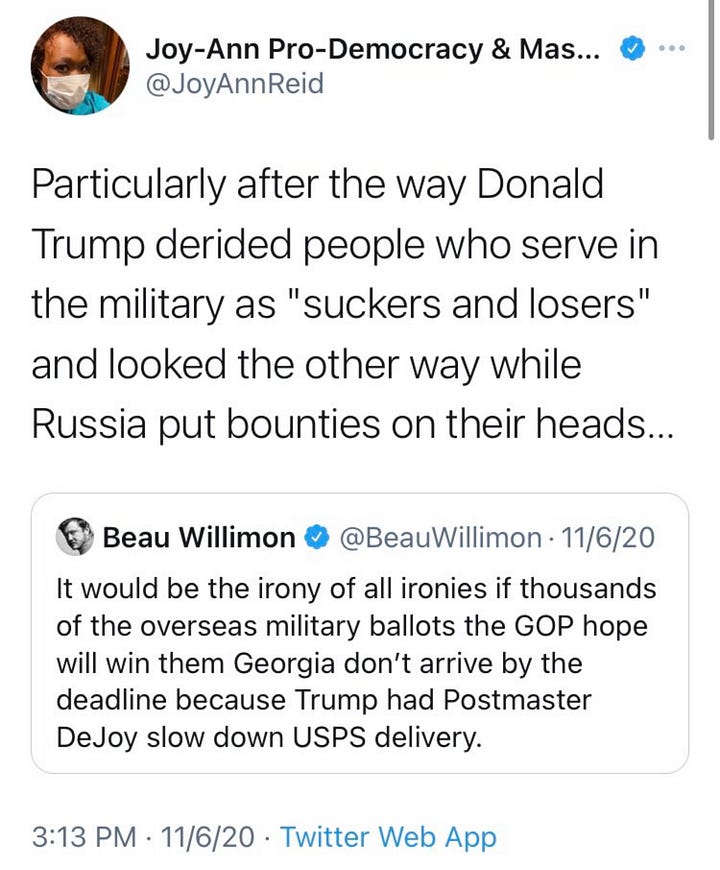
Just take in this Politico headline. It should go without saying, but headline selection is very much an editorial decision.
And one more from Politico. This headline is undoubtedly true. But I might change “breakdown” to “crackup.” And I think that “harsh light” is shining elsewhere.
NPR trotted out the “experts say” line, much like CNN. But I think they gave the game away a bit with the below quote. Who’s actually confident in this story? It sounds like it’s just the media, which doesn’t seem verifiable military intelligence to me:
However, other senior national security officials, including Defense Secretary Mark Esper, Director of National Intelligence John Ratcliffe and national security adviser Robert O'Brien have all issued statements saying their departments have not corroborated the media reports.
The White House said because there's no consensus in the intelligence community, advisers did not raise the matter with Trump until it broke in the press.
Axios, who got the exclusive about Trump not bringing up the allegations with Russian President Vladimir Putin, treated the information that made their supposed exclusive so important as if it was beyond question: “Exclusive: Trump never raised Russia's Taliban bounties with Putin.” You’ll notice that headline omits a modifier for the unproven nature of the supposed bounties. How is this responsible journalism?
The Associated Press turned the claims explicitly into a political story, where noble Democrats were pushing for Trump to do what was right. The story, “Trump faces pressure over Russia bounties to kill US troops,” AP parrots the claims of Dems that Trump was “bowing to Russian President Vladimir Putin at the risk of U.S. soldiers’ lives.”
But of course, “the intelligence officials and others with knowledge of the matter insisted on anonymity to discuss the highly sensitive matter.”
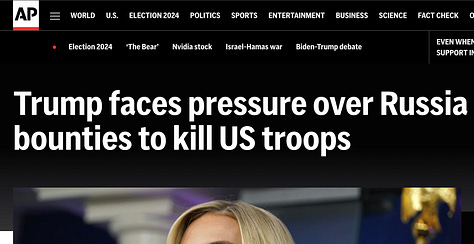
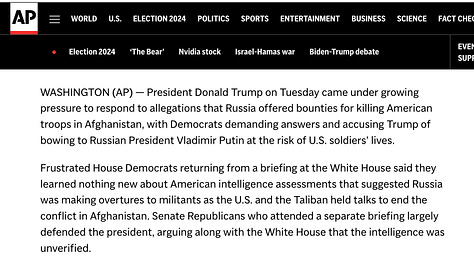
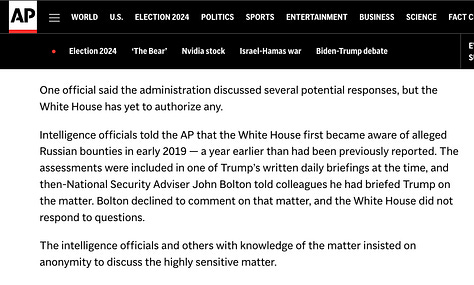
Shot, shot, shot…chaser from the Daily Beast. It’s one thing to trust the shady voices in American intel for a story, but relying on an ex-Taliban to counter the leader of the free world? Man.

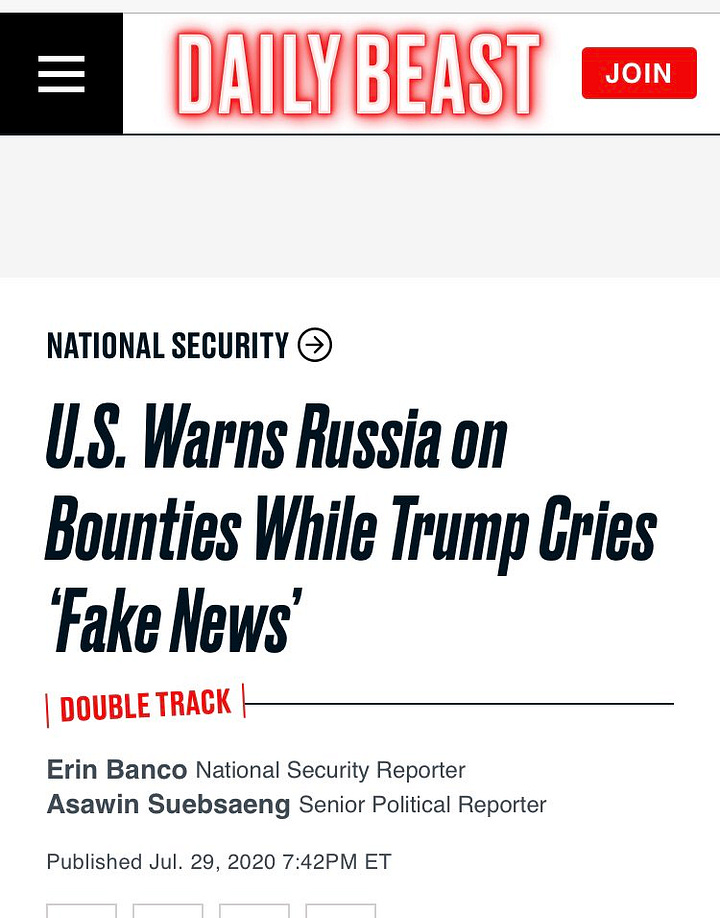


These are just a sampling. Countless outlets ran with the bogus story, as ever when such stories made Trump appear some variety of evil or deranged or Russian. Here’s Reuters, Associated Press, NBC News (factually wrong, perhaps, but emotionally true!), Guardian (this isn’t opinion!), ABC News, USA Today, Business Insider, PBS, and Forbes.
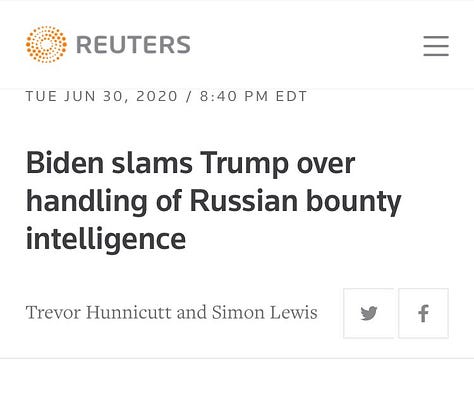

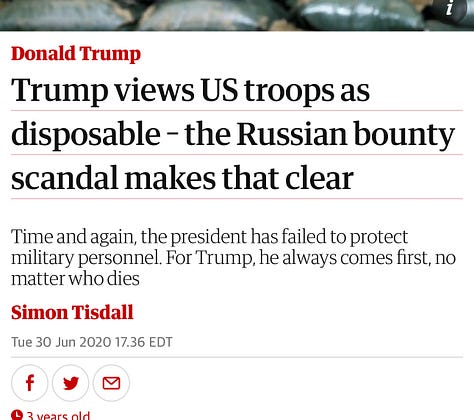

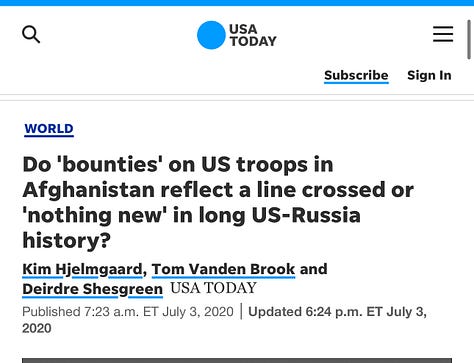
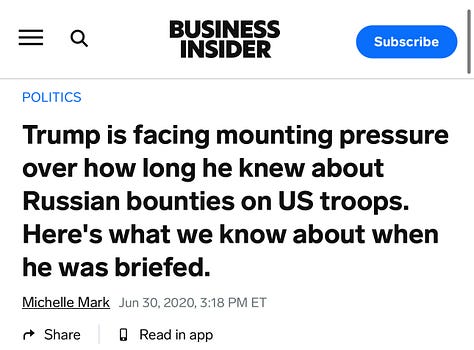
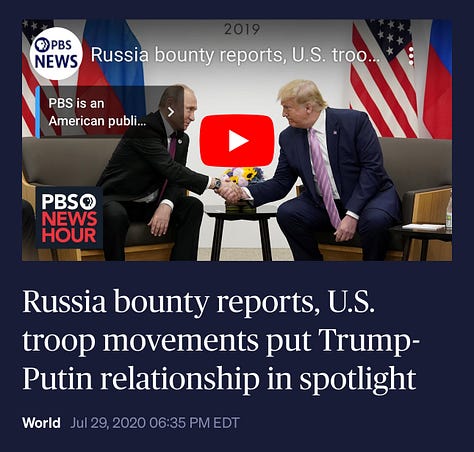
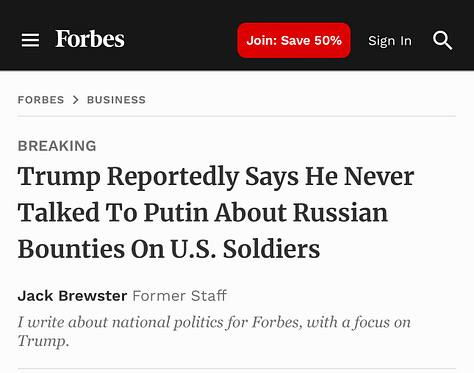
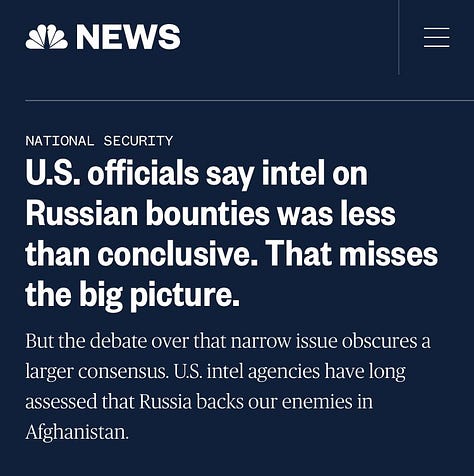
And I want to pause for just a moment on this brief thread on Twitter by former CNN host Brian Stelter, since his chosen information delivery medium is one I quite appreciate. Just read these claims. Perhaps Trump is so awful that concerned intel analysts have to report to the Times instead of doing their job. It was a line ripped from a Tom Clancy novel. And had the same connection to reality. (My initial screenshots are from when Stelter’s profile picture was his then-new book, Hoax. Unintentionally poetic when you consider this media moment in time.)
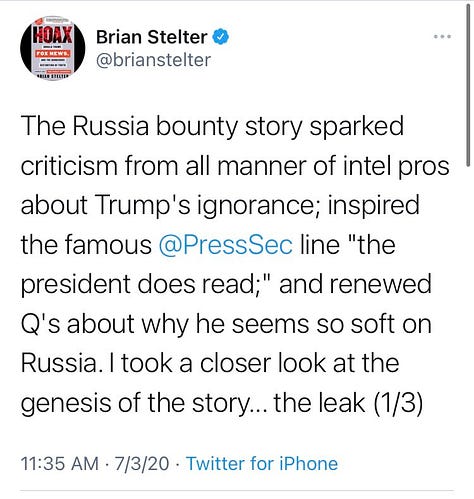
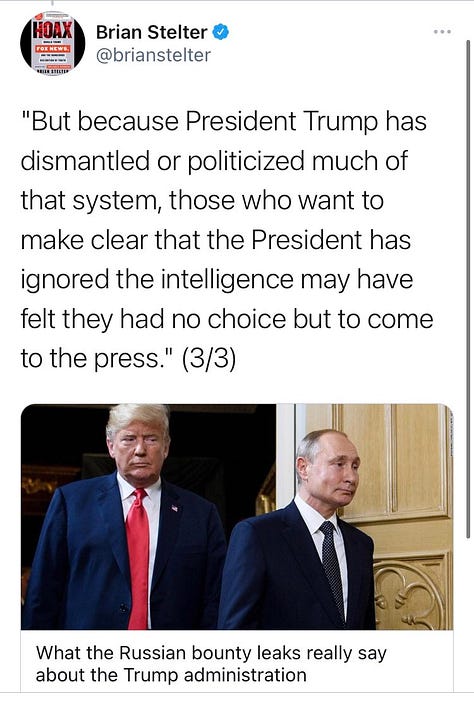
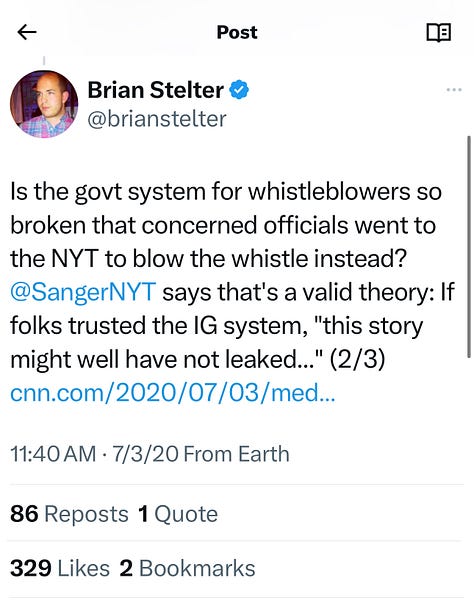
It wasn’t just the media. then-Democratic House speaker Nancy Pelosi, surely seeing a political opening, trotted out the unconfirmed reports to attack Trump for not doing what she wanted on Russia. This first one—”The President himself is a hoax.”—still makes me chuckle.
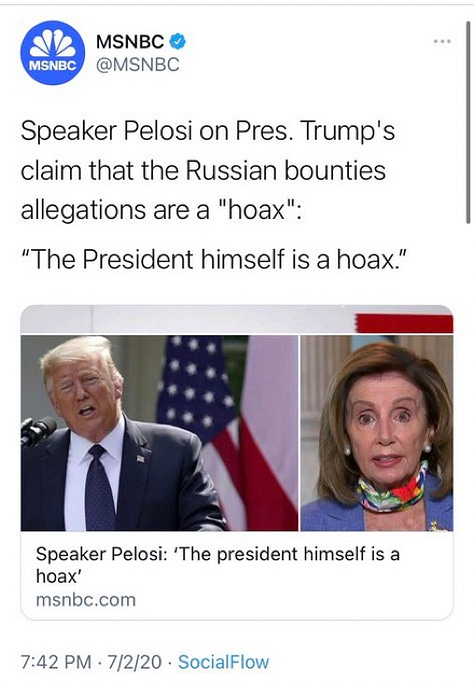
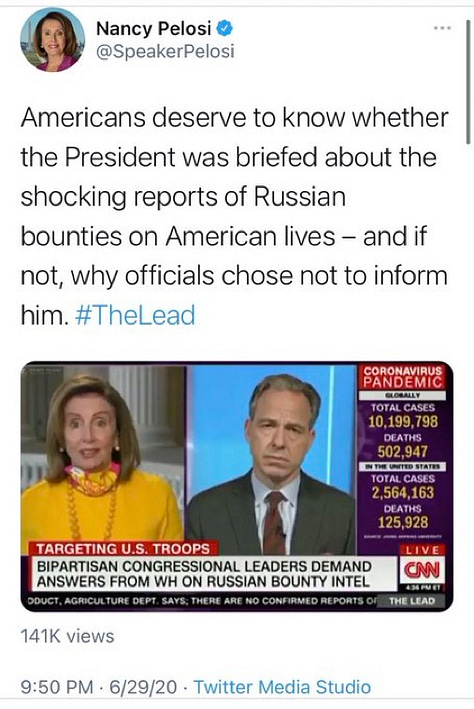
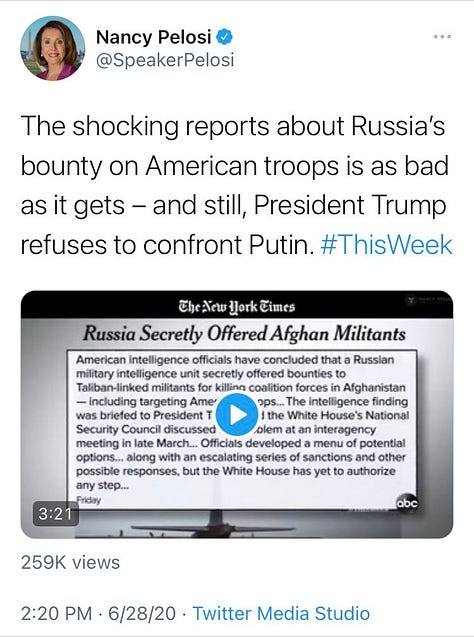
And both Joe Biden and Kamala Harris also turned the unproven allegations into referendums to be litigated during the upcoming election, advancing the claims as oppo research fodder. Biden called it a “betrayal” and a “dereliction of duty” while Harris said Trump “let Putin get away with placing bounties on the heads of our troops.”
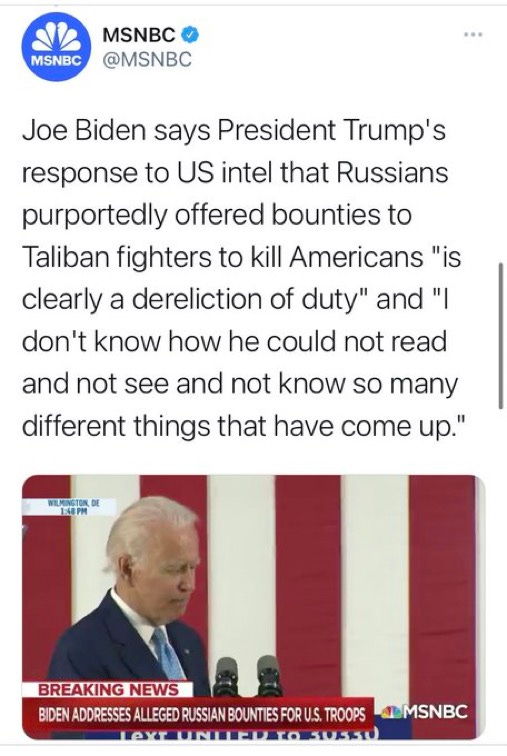

And of course you won’t be surprised to learn that all the smartest people on Twitter were outraged. Here are some thread favorites: Kurt Eichenwald, Seth Abramson, Steve Schmidt, Jennifer Rubin (of course), Anthony Scaramucci (remember him?), Max Boot (remember the hat?), and Joe Lockhart.

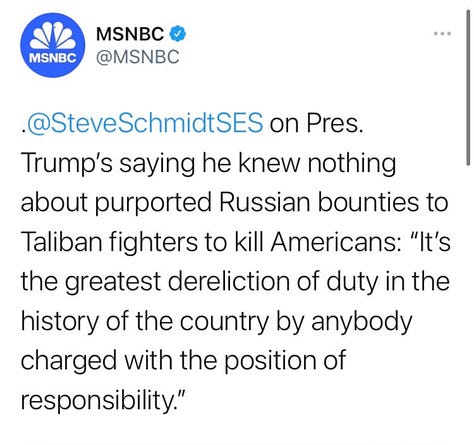
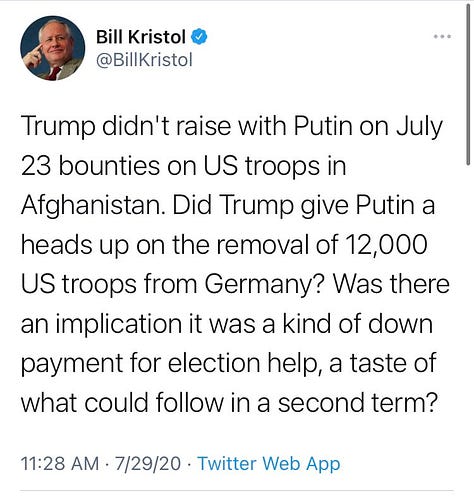
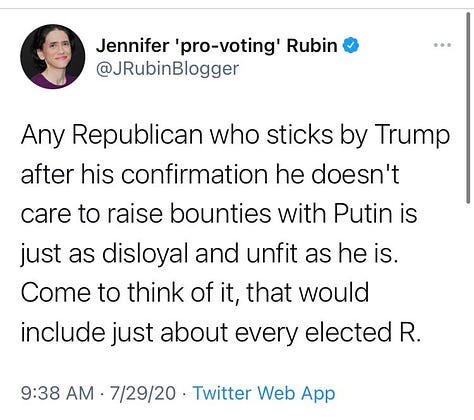
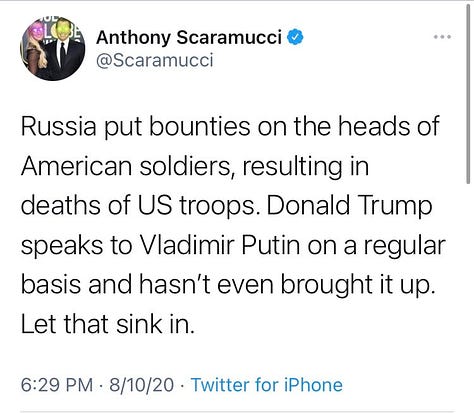

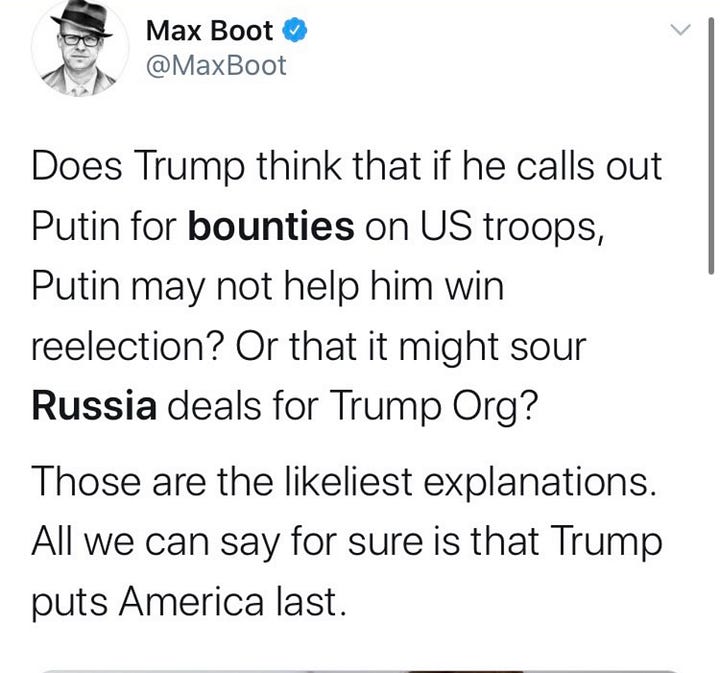

The facts: The press could’ve tried to validate the claims themselves. Or wait for an investigation—which was ongoing as these scoops were delivered and recklessly pushed—to finish. That would’ve been valuable to real journalism because the explosive rumors were never confirmed.
Despite months attempting to pin down the allegations, the military couldn’t. The allegations, described as a “hoax” by Trump, turned out to be just that.
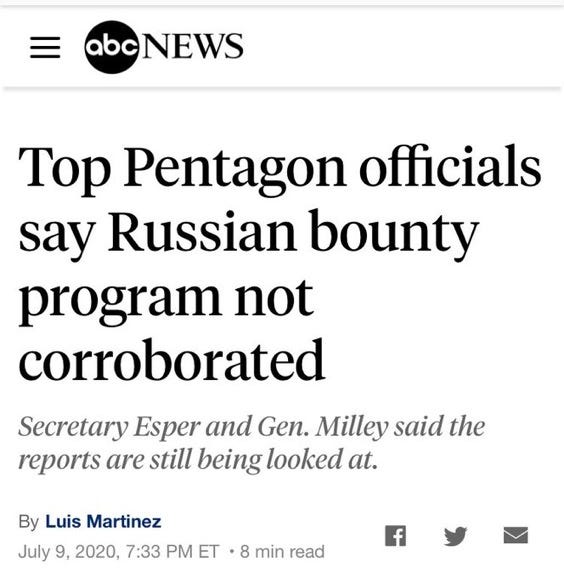

The side-by-sides for outlets like ABC News are embarrassing. Not that I imagine anyone feels shame about it.
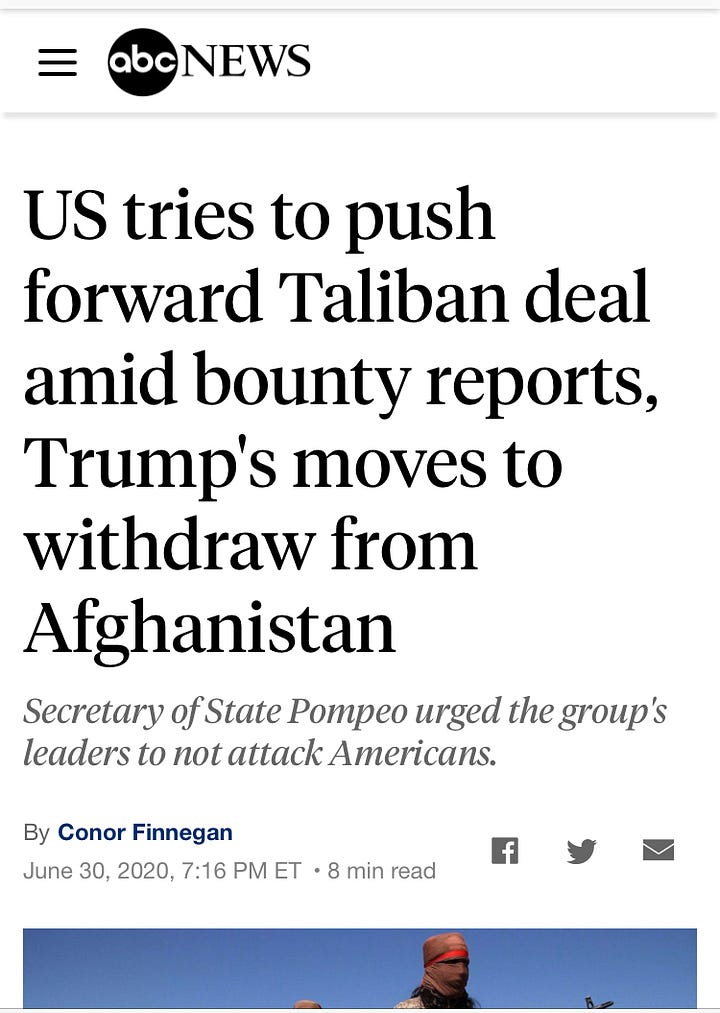
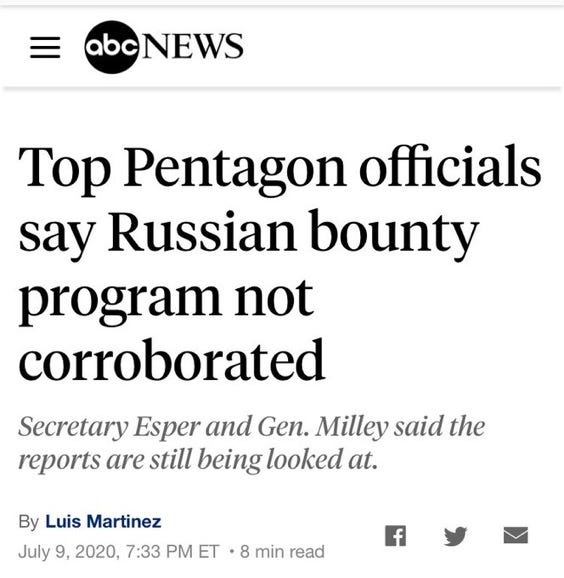
All of this, as much of the coverage makes clear, wasn’t just to make Trump look bad generally, but to suggest that his planned withdrawal from Afghanistan was lunacy, a slap in the face to the wizened intel and military greybeards who knew better. That tone quickly went out the window when Biden agreed to move forward with the plan, as I pointed out at the time in a thread.
The nail in the “Russian bounties” coffin really came in April 2021, when the CIA (the intel entity that had pushed the allegations initially) backed off the claims and the media rushed to report that the intelligence community wasn’t confident the story was true.
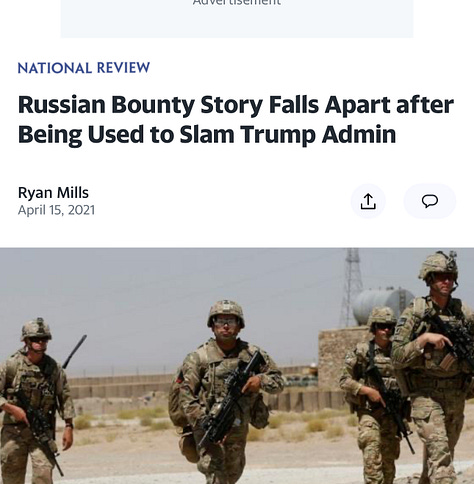
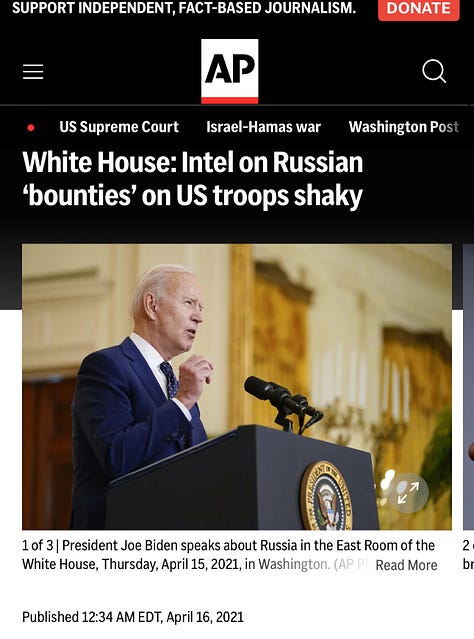

I hope it isn’t lost on anyone how neatly the story about “Russian bounties” fell apart as soon as Biden—who had repeated the claims as part of his campaign against Trump—was sworn into office.
The takeaway: Perhaps the most jarring aspect of this story is how so many voices in the media and the Democratic Party callously used the deaths of servicemen to push this story, absent evidence the two were connected. Many outlets accused Trump of callousness for ignoring this supposed bounties scheme. But how callous is it to weaponize grieving families to score political points?
The bottom line of the coverage is that the media and Democrats ran with a conspiracy theory to denigrate a candidate for the nation’s highest office, in the lead up to the election, wired to outrage potential voters.
This from the same outlets who claim to be concerned with the spread of disinformation and misinformation. Where was the below sentiment in this story?
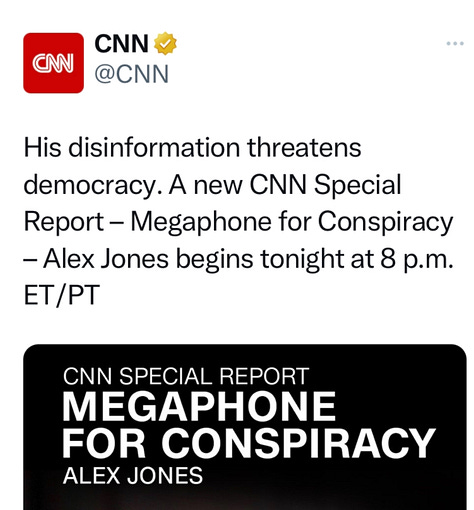
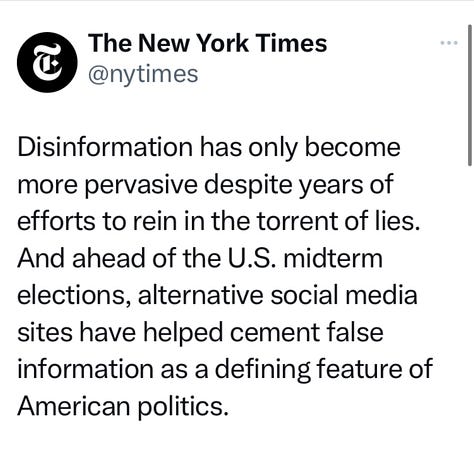
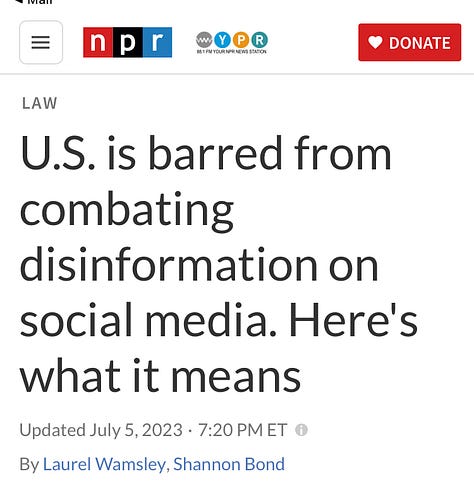
Apparently, the rules are different when outlets can instrumentalize that disinformation for their own purposes.
My last newsletter showed how adept the media is at using disinformation that fits their narrative to defend a candidate they like. It’s important to remember that the inverse of that—defaming a president they revile—is possible, too.
And not just possible. But a tried-and-true approach that has an impact on voters. Remember?
More on that soon.





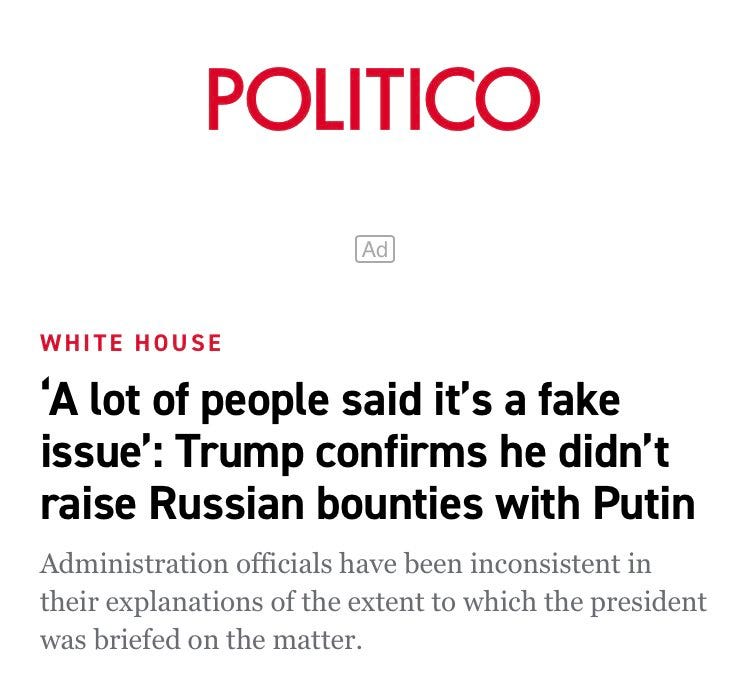
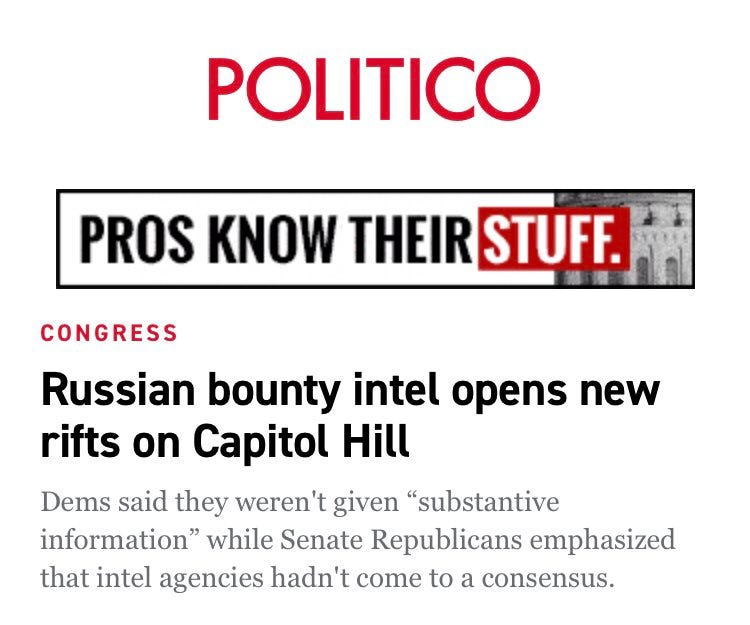

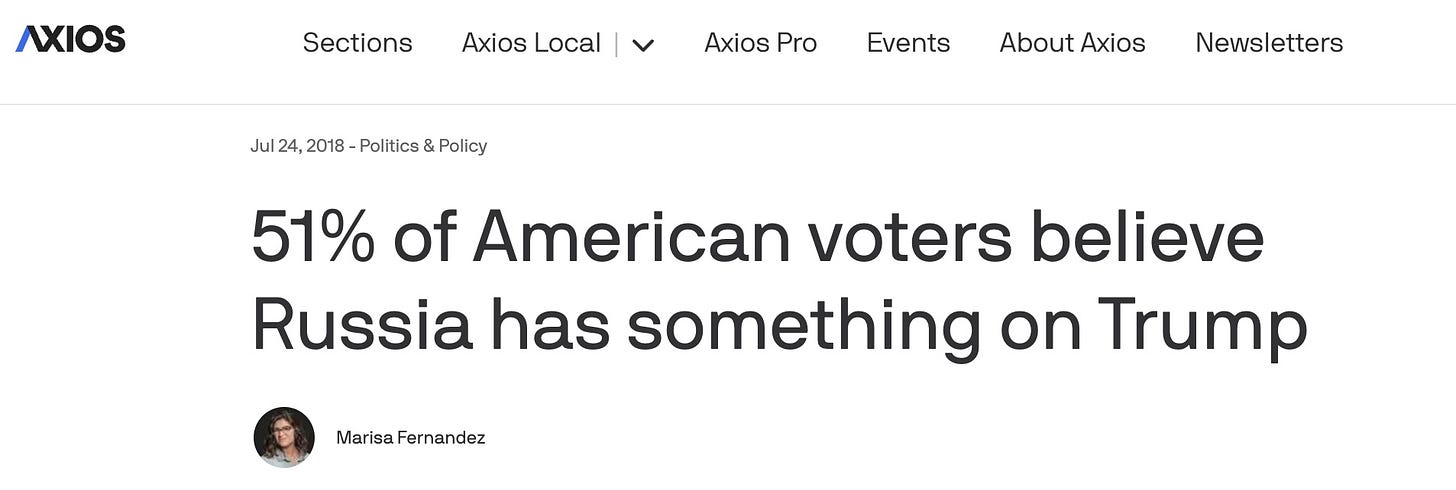
It seemed that so many who pushed the fake Russian bounties in order to hurt Trump ignored the real Iranian bounties so as to protect the Iran deal.